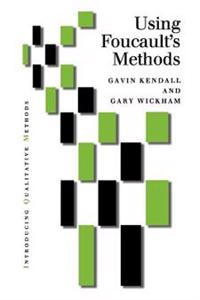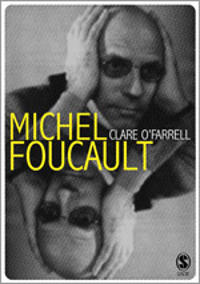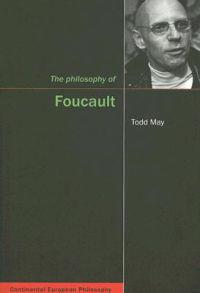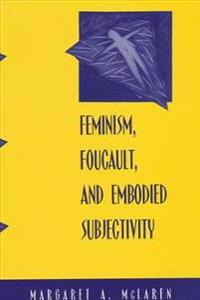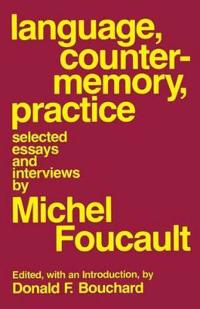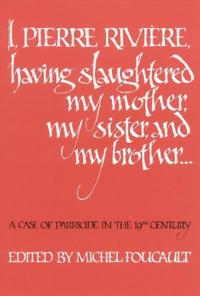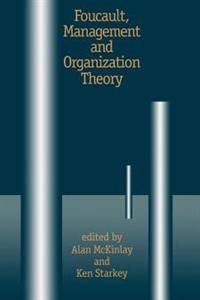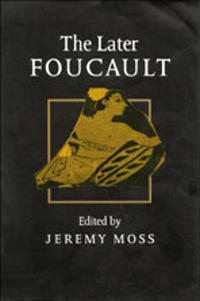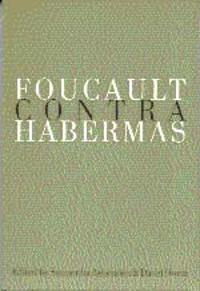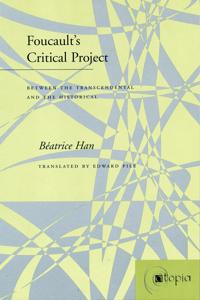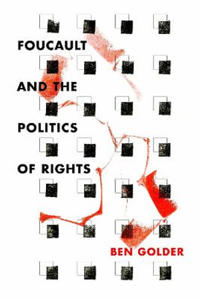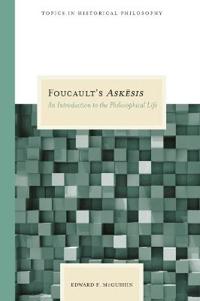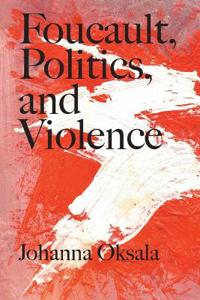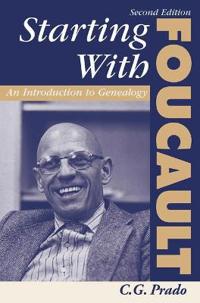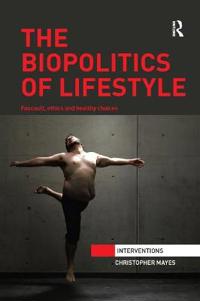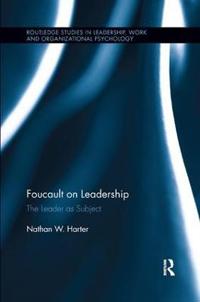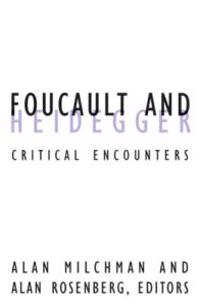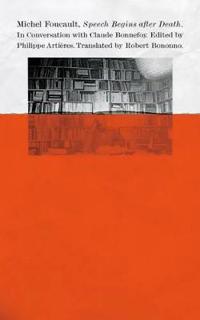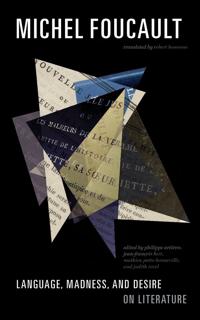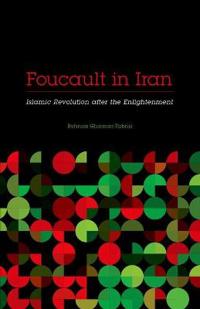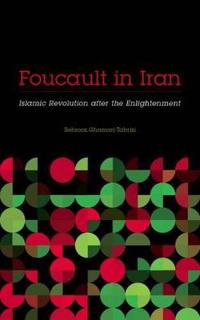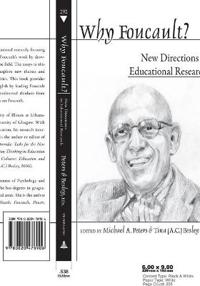Using Foucault's Methods (Häftad)
avGavin Kendall, Gary M. Wickham
ISBN: 9780761957171 - UTGIVEN: 199812'As a companion to Foucault's original texts, carefully showing what he's done and why - and how that could be applied elsewhere - it's outstanding' - www.theory.org.uk 'Very much a 'hands-on' tool kit of a book, scholarly but accessible...a very useful textbook which approaches its subject in an or[...]
Michel Foucault (Häftad)
avClare O'Farrell
ISBN: 9780761961642 - UTGIVEN: 200509'Clare O'Farrell is to be congratulated on producing a truly magnificent book on the work of Michel Foucault. There are details, insights and observations that will engage the specialist and there is an extensive documentation of Foucault's output. If there is a more comprehensive book on Foucault'[...]
Language, Counter-Memory, Practice (Häftad)
avMichel Foucault
ISBN: 9780801492044 - UTGIVEN: 198008I, Pierre Riviere, Having Slaughtered My Mother, My Sister, and My Brother: A Case of Parricide in the 19th Century (Häftad)
avMichel Foucault
ISBN: 9780803268579 - UTGIVEN: 198212Foucault, Management and Organization Theory (Häftad)
ISBN: 9780803975477 - UTGIVEN: 199712This volume draws together critical assessments of Michel Foucault's contribution to our understanding of the making and remaking of the modern organization. The volume provides a valuable summary of Foucault's contribution to organization theory, which also challenges the conventions of traditional[...]
The Later Foucault (Häftad)
ISBN: 9780803976764 - UTGIVEN: 1998-03Why does Foucault's work continue to be of central importance in current debates in sociology, political science and philosophy? Why do we still read him as a guide to contemporary social and cultural life? Foucault's work presents a provocative challenge to orthodox, habitual forms of belief and pr[...]
Foucault Contra Habermas (Häftad)
ISBN: 9780803977716 - UTGIVEN: 1999-07Foucault contra Habermas is an incisive examination of, and a comprehensive introduction to, the debate between Foucault and Habermas over the meaning of enlightenment and modernity. It reprises the key issues in the argument between critical theory and genealogy and is organised around three comple[...]
Foucault's Critical Project
ISBN: 9780804737081 - UTGIVEN: 2002-09This book uncovers and explores the constant tension between the historical and the transcendental that lies at the heart of Michel Foucault's work. In the process, it also assesses the philosophical foundations of his thought by examining his theoretical borrowings from Kant, Nietzsche, and Heidegg[...]
Foucault and the Politics of Rights
ISBN: 9780804796491 - UTGIVEN: 2015-10This book focuses on Michel Foucault's late work on rights in order to address broader questions about the politics of rights in the contemporary era. As several commentators have observed, something quite remarkable happens in this late work. In his early career, Foucault had been a great critic of[...]
Foucault's Askesis (Häftad)
ISBN: 9780810122833 - UTGIVEN: 2006-09In his renowned courses at the College de France from 1982 to 1984, Michel Foucault devoted his lectures to meticulous readings and interpretations of the works of Plato, Epictetus, Seneca, and Marcus Aurelius, among others. In this his aim was not, Edward F. McGushin contends, to develop a new know[...]
Foucault, Politics, and Violence (Häftad)
avJohanna Oksala
ISBN: 9780810128033 - UTGIVEN: 2011-05In her book, Oksala shows that the arguments for the ineliminability of violence from the political are often based on excessively broad, ontological conceptions of violence distinct from its concrete and physical meaning and, on the other hand, on a restrictively narrow and empirical understanding [...]
Starting With Foucault
ISBN: 9780813390789 - UTGIVEN: 2000-12Michel Foucault had a great influence upon a wide range of disciplines, and his work has been widely interpreted and is frequently referred to, but it is often difficult for beginners to find their way into the complexities of his thought. This is especially true for readers whose background is Angl[...]
Postmodern Spiritual Practices: The Construction of the Subject and the Reception of Plato in Lacan, Derrida, and Foucault
ISBN: 9780814210703 - UTGIVEN: 2007-12"Postmodern Spiritual Practices: The Construction of the Subject and the Reception of Plato in Lacan, Derrida, and Foucault, " by Paul Allen Miller, argues that a key element of postmodern French intellectual life has been the reception of Plato. This fact has gone underappreciated in the Anglophone[...]
The Biopolitics of Lifestyle: Foucault, Ethics and Healthy Choices (häftad)
ISBN: 9780815377399 - UTGIVEN: 2017-10A growing sense of urgency over obesity at the national and international level has led to a proliferation of medical and non-medical interventions into the daily lives of individuals and populations. This work focuses on the biopolitical use of lifestyle to govern individual choice and secure popul[...]
Foucault on Leadership: The Leader as Subject (häftad)
ISBN: 9780815381877 - UTGIVEN: 2017-11Michel Foucault, one of the most cited scholars in the social sciences, devoted his last three lectures to a study of leader development. Going back to pagan sources, Foucault found a persistent theme in Hellenistic antiquity that, in order to qualify for leadership, a person must undergo processes [...]
Foucault (Häftad)
avGilles Deleuze
ISBN: 9780816616756 - UTGIVEN: 198805Examines the philosophical foundations of Foucault's writings and discusses his views on knowledge, punishment, power, and subjectivation[...]
Foucault and Heidegger (häftad)
ISBN: 9780816633791 - UTGIVEN: 2003-05An essential consideration of these two closely related and influential figures. Michel Foucault and Martin Heidegger are two of the most important intellectual figures of the twentieth century, and yet there are significant, largely unexplored questions about the relationship between their projects[...]
Language, Madness, and Desire (Inbunden)
avMichel Foucault, Philippe (EDT) Artie`res, Jean-francois (EDT) Bert
ISBN: 9780816693238 - UTGIVEN: 2015-06As a transformative thinker of the twentieth century, whose work spanned all branches of the humanities, Michel Foucault had a complex and profound relationship with literature. And yet this critical aspect of his thought, because it was largely expressed in speeches and interviews, remains virtuall[...]
Foucault in Iran
ISBN: 9780816699483 - UTGIVEN: 2016-08Were the thirteen essays Michel Foucault wrote in 1978-1979 endorsing the Iranian Revolution an aberration of his earlier work or an inevitable pitfall of his stance on Enlightenment rationality, as critics have long alleged? Behrooz Ghamari-Tabrizi argues that the critics are wrong. He declares tha[...]
Foucault in Iran: Islamic Revolution After the Enlightenment (häftad)
ISBN: 9780816699490 - UTGIVEN: 2016-08Were the thirteen essays Michel Foucault wrote in 1978 1979 endorsing the Iranian Revolution an aberration of his earlier work or an inevitable pitfall of his stance on Enlightenment rationality, as critics have long alleged? Behrooz Ghamari-Tabrizi argues that the critics are wrong. He declares tha[...]
Why Foucault?
ISBN: 9780820478906 - UTGIVEN: 2006-12Why Foucault? provides an analysis of new directions in educational research, focusing on the utilization, application, and development of Michel Foucault's work by drawing on the contributions of leading international scholars in the field. The essays in this collection go beyond the introductory a[...]

